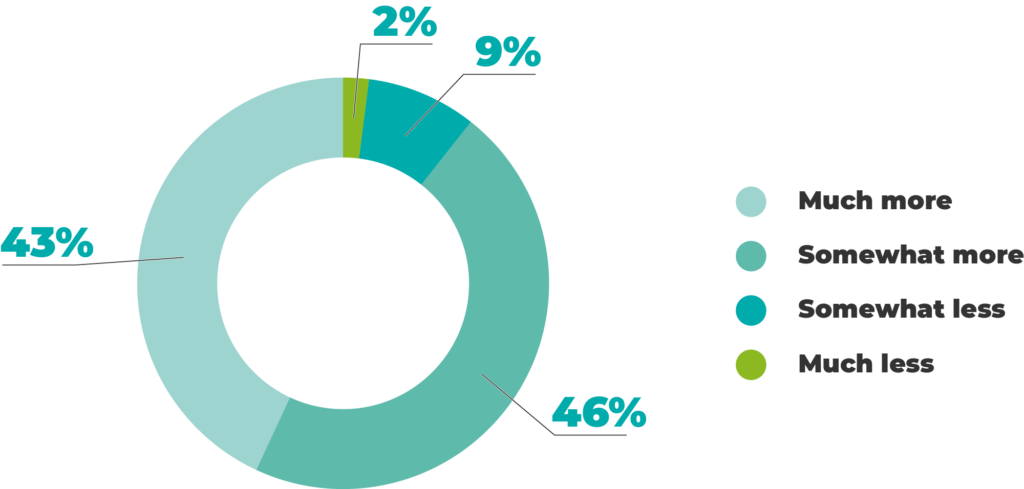
Investing in Trustworthy AI


The “Investing in Trustworthy AI” report examines how industry and government can work together to ensure that the benefits of AI are fully realized, that concerns over its risks do not dampen innovation, and that the United States can lead globally in trustworthy artificial intelligence (AI).
While the potential for the United States in harnessing its AI talent, computing capacity, and private-sector-driven innovation is enormous, AI also brings a unique set of challenges that should be addressed so that concerns over its risks do not dampen innovation, and to help ensure the United States can lead globally in the ethical development of AI-based systems, sometimes called “responsible” or “trustworthy” AI.
The recommendations and results in this paper are supported by a survey of 250 respondents who work for organizations across a wide range of industries based in or operating in the United States. Nearly half of the respondents held C-level or equivalent leadership roles.
The economic impact attributable to AI is estimated between $447 billion and $1.43 trillion over five years, which could be accelerated by increased government investments in AI R&D
this stat was calculated in this report based on a certain level of AI R&D spending.
Key Findings
Emphasizing the benefits of AI applications to workers and consumers can increase trust in AI.

71% of respondents believed that consumers would see benefits from the ability of AI to identify patterns or anomalies in complex and diverse data sets.

65% of survey respondents noted that consumers would gain confidence in AI as the pace of discovery of new medicines, materials and other technologies accelerated stemming from AI.

69% of respondents saw the creation of new types of work, especially higher-value occupations focused on creating, managing, and maintaining AI systems.
Public policies can play a significant role in the mitigation of risks.

72% indicated that the government could mitigate acceleration of social divides between workers with and without AI skills.

69% suggested that the government could encourage accountability for AI decisions.

66% indicated that the government could mitigate unwanted AI biases.

89% of respondents want to see increased government investment in AI research and development, in alignment with recent recommendations from the National Security Commission on Artificial Intelligence and recently-enacted legislation.
Relative to other priorities for R&D funding, should the government invest more, or invest less, in AI technologies in general?

The Weekly Download
Subscribe to receive a weekly roundup of the Chamber Technology Engagement Center (C_TEC) and relevant U.S. Chamber advocacy and events.
The Weekly Download will keep you updated on emerging tech issues including privacy, telecommunications, artificial intelligence, transportation, and government digital transformation.
